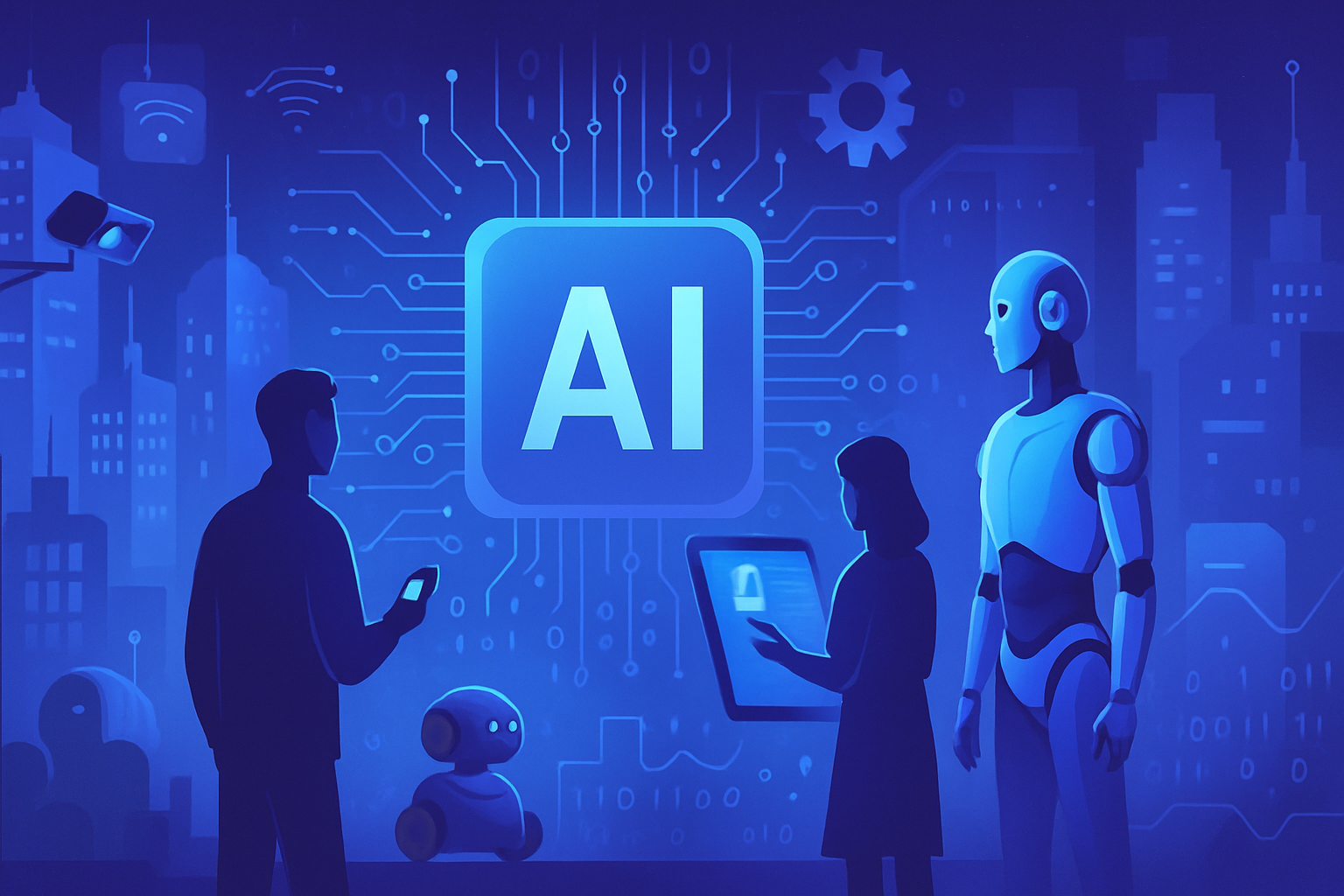The omnipresence of artificial intelligence in our daily lives raises deep questions. Used by 61% of American adults, AI fascinates and worries: *how to monetize it effectively?* The conversion rate *is a modest 3%*, revealing a striking gap between usage and profit. Concerns about data protection and trust in these technologies dampen enthusiasm. This analysis of consumer behavior and motivations highlights crucial issues for the future.
Widespread Adoption of AI
The Menlo Ventures 2025 report, conducted with Morning Consult, sheds light on the widespread adoption of artificial intelligence by the American population. An online survey questioned more than 5,000 adults, revealing that 61% of them have used a generative AI tool in the past six months. This phenomenon transcends generational boundaries, with younger individuals not being the only group aligned with the technology.
Users by Age Group
Members of Gen Z stand out with a usage rate of 76%, while 70% of millennials closely follow. Generation X accounts for 59% of adults, while 45% of baby boomers have adopted AI, demonstrating its intergenerational appeal. A notable fact: 79% of parents use AI at least once a month, reinforcing the relevance of these tools in their daily lives.
Income Impact on AI Adoption
Income levels significantly influence the use of AI tools. Among those earning over $100,000, 74% are AI users, compared to 53% for those earning below $50,000. Despite lower access, more than half of low-income households report regular use of these tools.
Disparity Between Usage and Spending
Despite widespread adoption, the monetization of AI remains challenging. According to Menlo Ventures, only 3% of users subscribe to paid plans, even though there is the potential to develop a market worth $432 billion. Users often prefer free offerings, which are sufficient for moderate use.
ChatGPT, despite its status as a pioneer, converts only 5% of its users into paying subscribers. The observed gap represents an engagement opportunity for businesses, according to Menlo Ventures experts who mention a favorable dynamics.
Use of Specialized vs Generalist AI
Fully integrated into consumers’ daily lives, generalist tools dominate the market. About 81% of the $12 billion spent on AI tools is for applications like ChatGPT or Gemini. More specialized tools account for only a total of $2 billion, illustrating a preference for more accessible solutions.
Resistance to AI Adoption
A proportion of 39% of respondents do not use generative AI, expressing reservations about these new technologies. The main objections recorded include 80% of individuals preferring human interaction, and 71% worrying about the security of their personal data. The distrust towards information generated by machines remains high, with 58% of respondents indicating that they do not trust it.
This resistance is also expressed through the need for human decision-making, acknowledged by 53% of participants. Misunderstanding and lack of knowledge regarding the use of AI tools concern 48% of others, while 40% of respondents perceive a bias in AI’s responses.
Frequently Asked Questions About AI Adoption and Use Without Compensation
What percentage of AI users subscribe to paid plans?
Currently, only 3% of AI users opt for a paid plan, despite the widespread use of these tools.
What are the main reasons users do not pay for AI services?
The reasons include a preference for human interactions, concerns about personal data protection, and the sufficiency of available free offerings.
How does AI adoption vary across age groups?
AI adoption is high among young adults, with 76% of Gen Z members using it, but significant rates also exist among older generations, including 45% of baby boomers.
Do AI users make significant expenditures in this area?
Although usage is widespread, the market for paid services is limited, with only $12.1 billion spent compared to an estimated potential of $432 billion.
How do income levels influence AI usage?
Higher-income users (74% of individuals earning over $100,000 per year) have higher adoption rates, but AI use is also significant in lower income brackets.
What demographic categories show high AI usage?
Parents, with 79% of them using AI at least once a month, stand out as a particularly active group in AI adoption.
What AI tools are most used by consumers?
Generalist AI tools, such as ChatGPT and Gemini, capture the majority of spending, representing up to 81% of a total market of $12 billion.
Why is the conversion of AI users into paying subscribers so low?
The available free offerings often meet the needs of casual users, making paid subscriptions less attractive.
What concerns do people who do not use AI express?
Among the main concerns are data protection, trust in generated information, and the idea that decisions should remain human.






